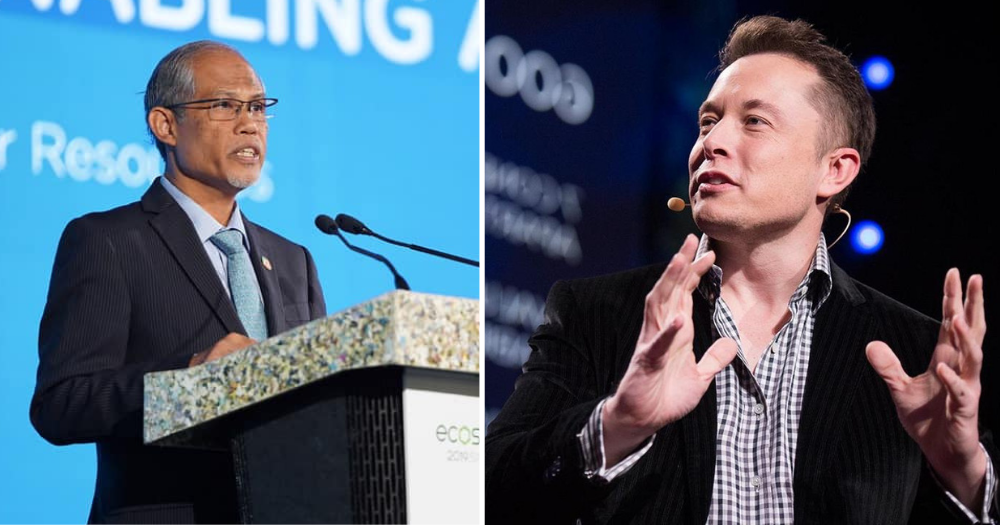It appears Singapore clearly doesn't see eye-to-eye with tech tycoon and Silicon Valley billionaire Elon Musk.
Masagos hits back at Elon Musk
Musk, the CEO of electric vehicle (EV) manufacturer Tesla, had previously made some pointed comments online, implying that Singapore was slow to adopt electric vehicles.
In a tweet in May 2018, he criticised Singapore for being unsupportive of electric vehicles despite the country being "very prosperous".
We tried, but Singapore govt is not supportive of electric vehicles
— Elon Musk (@elonmusk) May 26, 2018
Tesla cars a lifestyle
In an interview on Aug. 21, 2019, minister for environment and water resources Masagos Zulkifli subsequently retaliated by describing Musk's Tesla cars as lifestyle assets, and that "what Elon Musk wants to produce is a lifestyle".
He added that electric vehicles are not Singapore's solution to climate-related issues, according to Bloomberg: "We are not interested in a lifestyle. We are interested in proper solutions that will address climate problems."
Public transport the way to go
In his recent 2019 National Day Rally, Prime Minister Lee Hsien Loong's addressed climate change in a big way.
PM Lee stated that it would cost over S$100 billion to protect the island-state from rising sea levels, one of climate change's biggest threats.
Public transport the solution
Masagos clarified that electric vehicles were currently not the solution the government was looking for.
Instead, Singapore would be focusing on mass transit to tackle the problem of carbon emissions in our warming climate (carbon taxes aside).
In May 2019, the Land Transport Authority previously unveiled their Land Transport Masterplan (LTMP) 2040.
As part of the masterplan, the LTA is planning to improve connectivity between neighbourhoods, business districts and industrial areas by constructing more MRT lines and stations, and is planning for shorter bus commutes.
The aim is to ensure that any commuter's journey from home to work would take 45 minutes tops.
Singapore not completely against EVs
Electric cars have been touted as the sustainable alternative to diesel-fuelled cars and vehicles.
But even as they produce less carbon emissions, they are not the panacea to the emissions-churning transport problem.
Shared public transport, due to its ability to ferry around many times the people a single car can, already saves on emissions generated per person.
A recent Forbes article also echoed the same sentiments.
Instead of relying on electric cars, governments should focus on encouraging the usage of public transport, walking or cycling.
Ultimately, electric cars do not appear to be the silver bullet to decarbonising the transport industry.
That doesn't mean that Singapore is completely unreceptive to electric vehicles.
Shell just unveiled the country's first electric vehicle charger at a petrol station in Sengkang.
“If there’s any country which can convert from petrol cars to 100 percent EVs, it will be Singapore,” said Masagos.
However, he did highlight the difficulty of installing adequate charging stations around the island, considering how 85 percent of the population resides in high-density areas.
Masagos said: "Just choosing a parking spot is already problematic. And now you want to say who gets the charging point. We do not have the solution yet."
As of now, Musk has yet to respond to Masagos' reply.
Top photo from Masagos Zulkifli / FB and Zaranika Tanefi / FB
If you like what you read, follow us on Facebook, Instagram, Twitter and Telegram to get the latest updates.
